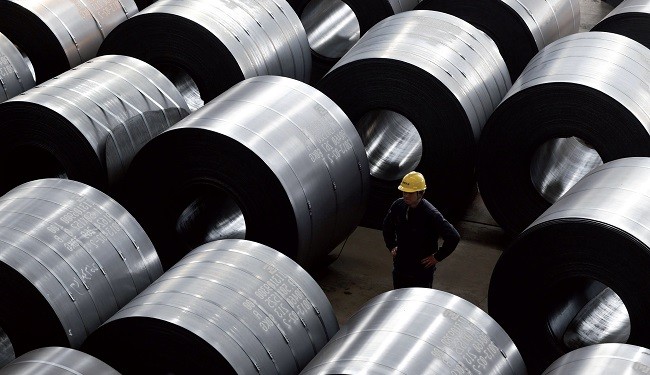
Steel sheets are flat-rolled products made from steel that are widely used in various industries for their versatility, durability, and strength. These sheets are produced through a series of manufacturing processes that involve shaping, cutting, and finishing steel to create flat sheets of different thicknesses and sizes. Steel sheets are available in a wide range of grades, finishes, and coatings to meet the specific requirements of different applications.
The production of steel sheets begins with the melting of raw materials such as iron ore, coal, and limestone in a blast furnace to create molten steel. The molten steel is then cast into slabs, which are subsequently rolled into thin sheets through hot rolling or cold rolling processes. Hot rolling involves passing the steel slabs through a series of rollers at high temperatures to reduce the thickness and shape the steel into flat sheets. Cold rolling, on the other hand, involves passing the hot-rolled sheets through cold rollers to further reduce the thickness and improve the surface finish of the steel sheets.
Steel sheets can be further processed through various treatments such as annealing, tempering, galvanizing, or coating to enhance their properties and performance. Annealing involves heating and cooling the steel sheets to improve their ductility and toughness, while tempering is done to increase their hardness and strength. Galvanizing involves coating the steel sheets with a layer of zinc to protect them from corrosion, while coating with paints or other materials can enhance their aesthetic appeal and resistance to wear and tear.
Steel sheets have a wide range of applications in different industries due to their excellent mechanical properties, corrosion resistance, and formability. Some of the key industries where steel sheets are commonly used include:
1. Construction industry: Steel sheets are widely used in the construction industry for roofing, cladding, wall panels, structural components, and other building materials. The high strength-to-weight ratio, durability, and versatility of steel sheets make them ideal for constructing residential, commercial, and industrial buildings that require strong and reliable materials.
2. Automotive industry: Steel sheets are essential in the automotive industry for manufacturing body panels, chassis components, engine parts, and other automotive structures. The formability, weldability, and crash resistance of steel sheets make them preferred materials for producing lightweight yet strong vehicles that meet safety and performance standards.
3. Manufacturing industry: Steel sheets find applications in the manufacturing industry for producing machinery, equipment, appliances, tools, and consumer goods. The machinability, strength, and cost-effectiveness of steel sheets make them suitable for fabricating a wide range of industrial products that require high-quality materials with consistent performance.
4. Energy sector: Steel sheets are used in the energy sector for manufacturing pipelines, storage tanks, pressure vessels, and other infrastructure components that are essential for transporting and storing oil, gas, water, and other energy resources. The corrosion resistance, durability, and reliability of steel sheets make them critical materials for ensuring the integrity and safety of energy infrastructure systems.
5. Aerospace industry: Steel sheets are employed in the aerospace industry for producing aircraft components, structural parts, landing gear, and other aerospace structures. The high strength-to-weight ratio, fatigue resistance, and thermal stability of steel sheets make them valuable materials for manufacturing aircraft that require lightweight yet durable materials for safe and efficient flight operations.
At IRMEG, we specialize in the supply of high-quality steel sheets that meet stringent industry standards and customer specifications. Contact us to learn more about our steel sheets offerings and how they can support your manufacturing needs.